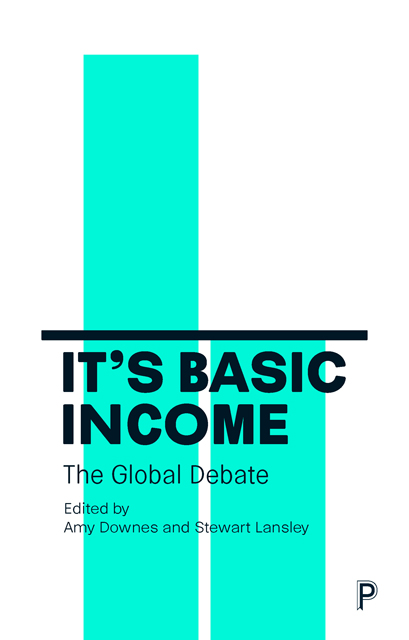6 - Feminist reflections on basic income
Published online by Cambridge University Press: 11 April 2023
Summary
‘Basic income in itself may not be able to challenge the gender division of labour. However, it can bring about one critical condition necessary for the realisation of gender justice … an increased level of economic independence for many women and an end to the gendered discriminatory nature of current welfare systems.’
Feminist economics, which grew in influence from the mid-1980s, encompassed a strong critique of the assumptions underlying the welfare state developments in Western Europe. It was argued that the link between paid employment and welfare entitlements – a fundamental element of most welfare states – reflected a perspective that showed a complete lack of recognition of the fluidity of women’s economic activities. In practice, women’s economic lives are likely to be shaped by a spectrum of economic activity: paid employment, home-based carer, part-time employment, underemployment and unpaid work. Such a fluid economic picture fell largely outside the maleoriented binary image of employment and unemployment that shaped Western welfare states.
The lack of recognition of unpaid work that has characterised mainstream economic thinking was the focus of Marilyn Waring’s ground-breaking text Counting for Nothing: What Men Value and What Women are Worth, which revealed the essential flaw of traditional gendered economic thinking. At the heart of such thinking is the undervaluing of care and care labour – largely carried out by women – and the structural economic disadvantages experienced by women as a consequence. Essentially the male-worker/earner breadwinner model which rendered the majority of women as dependents within Western welfare states (and in relation to family income) was the dominant patriarchal welfare model – a model that penalised women for carrying the majority of care responsibilities. Linked to such gendered economic perspectives is a fundamental inequality in the sharing of unpaid work that has persisted up to the present day at a global level. The only exceptions to this have been in the Nordic countries where a significant majority of women entered the paid employment economy and built up welfare entitlements closely on a par with men.
- Type
- Chapter
- Information
- It's Basic IncomeThe Global Debate, pp. 39 - 44Publisher: Bristol University PressPrint publication year: 2018



